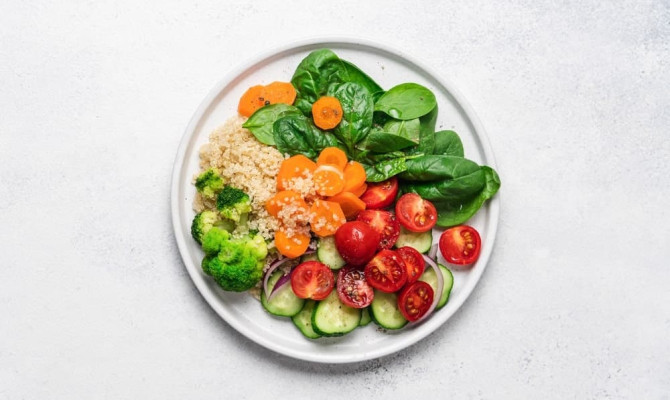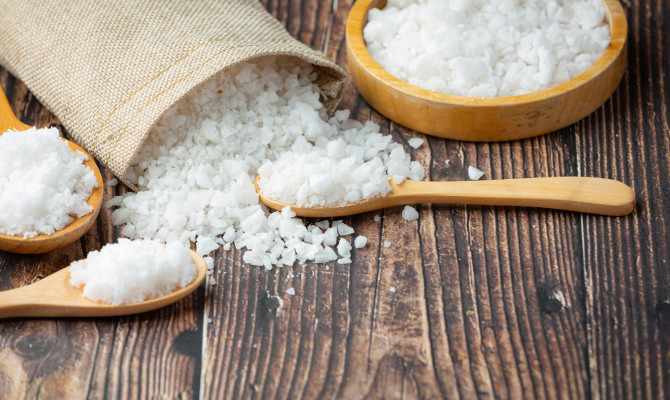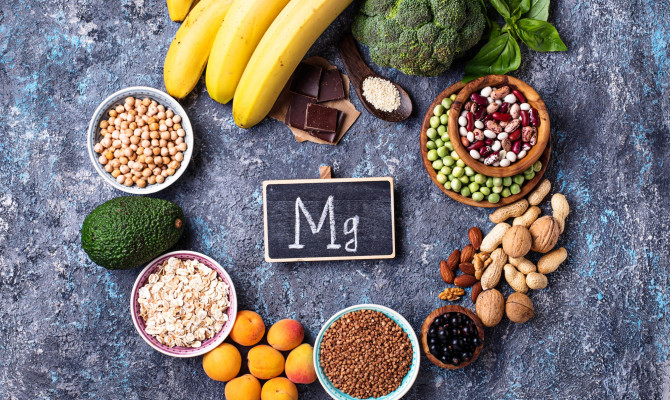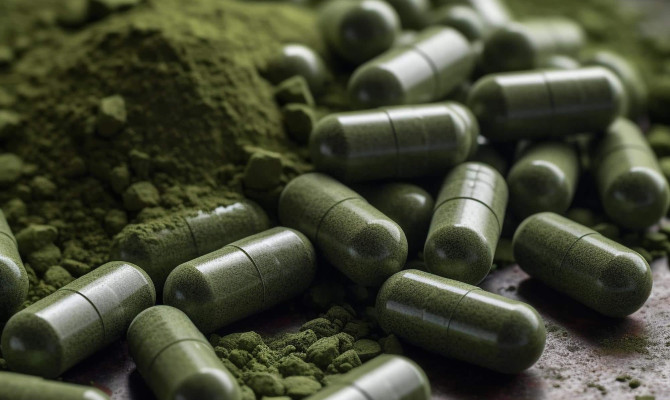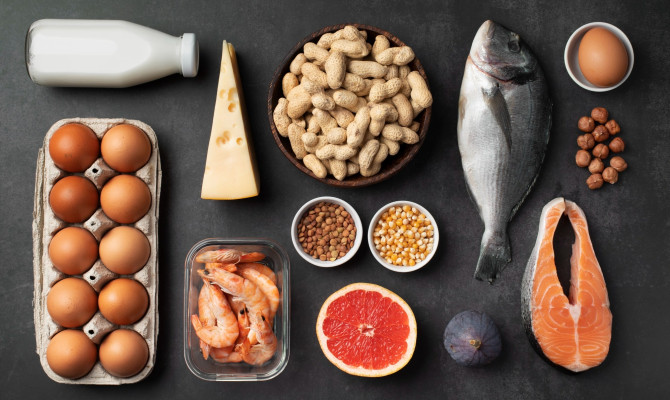Milk Thistle For Hangover: Safety & Side Effects

- Milk Thistle
- 11 Sep 2023
Overview
What is Milk Thistle?
Milk thistle is an herb that is often utilized as a mineral supplement for improving liver health. It is composed with silymarin, which is a powerful antioxidant. The scientific name for milk thistle is Silybum marianum 1 Overview | Researched based study from Cancer Research UK . It is a flowering plant. Milk thistle grows naturally in the Mediterranean. It is known for its unique look, which is made up of spiky leaves and pink or purple flowers. Milk thistle has been used in traditional plant treatment and for other medical uses for hundreds of years.
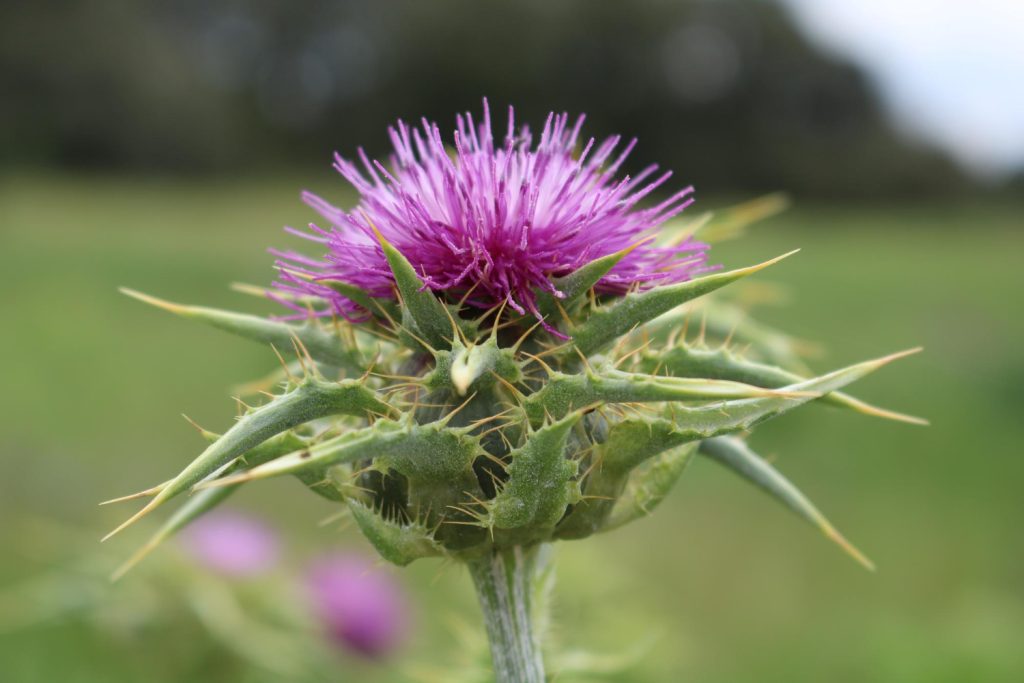
Ingredients
What Does Milk Thistle Contain?
- The main ingredient in milk thistle is a collection of flavonolignans called silymarin. Silymarin is thought to have qualities that protect the liver, reduce inflammation, and fight free radicals.
- Because of this, milk thistle pills are often used to support liver health and may be used as an alternative treatment for liver diseases like hepatitis, cirrhosis, and fatty liver disease.
- Milk thistle products come in pills, powders, and drinks.
- They are often sold as nutrition supplements and can be found in health food shops. Before taking milk thistle, you should talk to a doctor, just like you should before you take any other plant product. This is especially true if you have a health problem or are taking other medicines, as there could be issues or side effects.
- Milk thistle is usually thought to be safe for short-term use, but researchers are still looking into its long-term benefits and the best way to take it. When deciding whether or not to use plant medicines, it’s important to be careful and get information from reliable sources.
Benefits
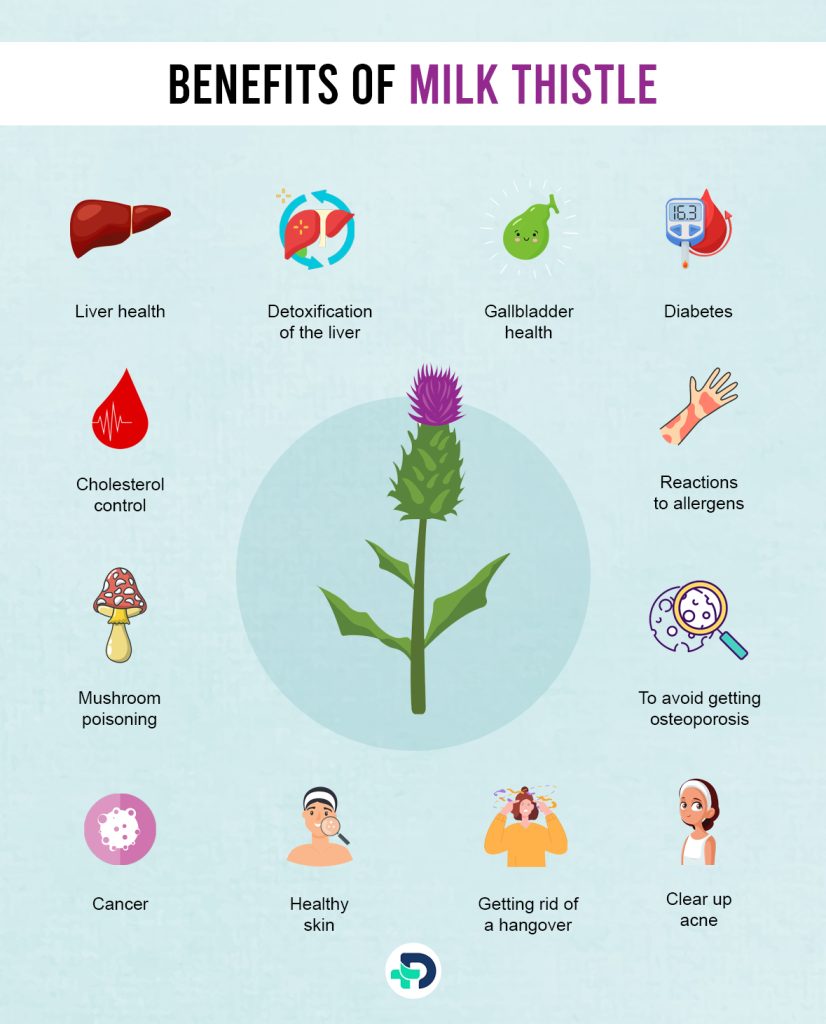
Benefits of Milk Thistle
Milk thistle is known to have been helpful in both standard and alternative treatments. Here are some ways milk thistle could be used:
- Liver health
- Detoxification of the liver
- Gallbladder health
- Diabetes
- Cholesterol control
- Healthy skin
- Getting rid of a hangover
- Reactive allergens
- Mushroom poisoning
- Cancer
- Aids cognitive loss
- Clear up acne
- Production of breast milk
- Treat osteoporosis
Liver health:
- Milk thistle can help keep the liver healthy, which is one of its most well-known and researched uses.
- The main ingredient silymarin is thought to have antioxidant and anti-inflammatory qualities. This could help protect liver cells from damage caused by chemicals, booze, and some medicines.
- Milk thistle pills are often used to help the liver work better and might help with hepatitis, cirrhosis, and fatty liver disease.
Detoxification of the liver:
- Milk thistle is sometimes used as part of plans to “cleanse” or “detoxify” the body.
- However, there isn’t a lot of research proof to show that it works for this reason.
Gallbladder health:
- Some people use milk thistle to keep their gallbladders healthy and get rid of gallbladder cysts.
- Silymarin affects the quantity and synthesis of flow of bile.
Diabetes:
- Some study suggests that milk thistle might help with insulin resistance and high blood sugar levels.
Cholesterol control:
- Milk thistle has been looked at in some studies to see if it can help drop cholesterol, especially LDL (“bad”) cholesterol.
Healthy skin:
- Milk thistle oils are sometimes used in skin care items because they are thought to reduce inflammation and act as antioxidants.
- They may be found in items meant to treat acne, eczema, and skin that is getting older.
Getting rid of a hangover:
- Milk thistle can ease the signs of a hangover by helping the liver handle booze and its byproducts. But there isn’t much proof for this.
Reactions to allergens:
- Some early study suggests that milk thistle may have anti-allergic qualities and could help make allergy responses less severe.
Mushroom poisoning:
- Traditionally, milk thistle has been used as a quick fix for people who have been poisoned by the death cap mushroom (Amanita phalloides).
- Studies on animals have shown that milk thistle extract fully cancels out the harmful effects of the plant if it is given within 10 minutes of eating it.
- If it is given within 24 hours, the chance of liver damage and death is cut by a lot.
Cancer: 1 Benefits | Researched based study from Cancer Research UK
- Early tests in the lab show that silymarin and other active ingredients in milk thistle may help fight cancer. Some studies show that silymarin may be a good addition to sunscreen and may help lower the risk of getting skin cancer. Milk thistle will:
- Not let cancer cells grow and multiply.
- Stop cancer cells from spreading.
- Cuts off the blood flow to tumors
Aids cognitive loss:
- Milk thistle has been used to treat diseases like Alzheimer’s and dementia in test tubes and on animals, and the results have been mostly good.
Clear up acne:
- Milk thistle seems to help reduce reactive stress, so some people with bad acne take it and say they have a lot less acne problems.
Production of breast milk:
- One controlled study did find a link between milk thistle and more breast milk.
To avoid getting osteoporosis: 2 Benefits | Researched based study from National Institutes of Health
- Bone formation, in particular, has been studied in test tubes and on animals, but there hasn’t been a clinical study on people.
Milk thistle has been used for above-mentioned problems, but it’s important to note that before taking milk thistle or any other plant product for a specific health problem, it’s best to talk to a doctor. They can give you advice that is specific to you based on your health and the most recent research.
Mechanism of Action
How Does Milk Thistle Work?
Silymarin 3 Mechanism | Researched based study from National Institutes of Health , the active ingredient in milk thistle (Silybum marianum), is thought to be the main reason why it might be good for your health. Silymarin is a complex mix of flavonolignans like silybin, silydianin, and silychristin. It is thought that these chemicals play a role in milk thistle’s effects on the body, especially when it comes to liver health. Here’s how people think milk thistle and silymarin work:
Antioxidant:
- Silymarin is known for being a good antioxidant. Antioxidants are useful in eliminating free radicals, that are dangerous chemicals that damage cells and tissues.
- Silymarin protects cells, including liver cells, from damage caused by chemicals, pollution, and other stresses by lowering reactive stress.
Protection for the liver:
- Silymarin is thought to have hepatoprotective benefits, which means it can help keep liver cells from getting hurt and help them grow back.
- It helps in cutting inflammation, stopping toxins from getting into liver cells, and encouraging the growth of new healthy liver cells.
Protein synthesis:
- Silymarin makes liver cells make more proteins that are important for their structure and function.
- This could help liver tissue that has been damaged heal and grow back.
Bile Flow:
- Silymarin helps improve the flow of bile, which is a liver fluid important for processing and getting rid of waste.
- This result could be helpful for people who have problems with their liver or other diseases that affect the flow of bile.
Effects on reducing inflammation:
- Silymarin has been shown to help reduce inflammation, which may be one reason why it protects liver cells.
- Many liver diseases are linked to inflammation, and lowering inflammation can help stop further damage.
Regulates blood sugar:
- Some study shows that silymarin may affect how well insulin works and how much sugar is in the blood.
- It might help control how glucose is used in the body, which is important for people with diabetes or who are at risk of getting it.
It’s important to remember that even though these processes give us some ideas about how milk thistle might work, we still don’t fully understand how it works. Also, the scientific proof for some of these effects isn’t always the same. More study is needed to prove milk thistle’s benefits and learn more about how it works.
Can Milk Thistle cure hangovers?
- Milk thistle can help with hangovers because it may help protect the liver. This could help the liver handle alcohol and its byproducts more effectively, making hangover symptoms less severe.
Causes of a Hangover:
- Dehydration
- Inflammation
- Less restful sleep
- Congeners
Dehydration:
- Since alcohol is a diuretic, it will let your kidneys flush out water.
- It does this by stopping your pituitary gland from making a hormone called vasopressin, which controls how much water is in your body.
Inflammation:
- When your liver breaks down alcohol, it makes dangerous byproducts like acetaldehyde.
- When you drink too much alcohol, these by-products will accumulate and cause inflammation by reacting with your cells.
Less restful sleep:
- Alcohol keeps your brain from getting to the REM state of sleep, which you need to feel fully relaxed.
Congeners:
- These are the chemicals present in drinks that will make them smell and taste as they do.
- More congeners are in drinks with darker colors. Researchers have found that congeners make hangovers worse by making the body more inflamed.
Should Milk thistle be taken before or after having an alcoholic drink?
- There is no absolute rule. What you do rests on what you want to do.
- Most of the time it is suggested to take Milk thistle right before or right after your last drink if you want to avoid a hangover.
- Because it won’t make a difference to wait till you already get a hangover. Because by this point, all the damage that drinking has done is done.
Side Effects
Side Effects of Milk Thistle:
Even though it doesn’t happen often, milk thistle can cause a few common and mild side effects.
Studies have found that milk thistle can cause the following side effects:
- Nausea
- Diarrhea
- Bloating
- Headache
- Rash, eczema, or itching of the skin
- Painful joints
When you stop taking milk thistle, most side effects will go away.
How much Milk Thistle do I need to take?
The right amount of milk thistle (Silybum marianum) to take depends on things like the product you’re using, how much of the active ingredients it has (like silymarin), your health, and how you react to the supplement.
So, here are some general rules 4Dosage | Researched based study from National Institutes of Health for how much milk thistle to take:
Standard Extract:
- Milk thistle supplements are usually defined to have a certain amount of silymarin, which is usually between 70% and 80%.
- Standardized milk thistle extract is usually taken in doses of 200 to 400 mg of silymarin per day, which can be split into two or three amounts.
Whole Herb Powder:
- Doses can be different when milk thistle is used as a whole herb powder.
- Most people are told to take between 12 and 15 grams of the dried herb per day, in several doses.
Extracts or tinctures in liquid form:
- Different liquid extracts or medicines have different suggested doses, so it’s important to follow the directions on the product label.
Tea:
- There is no set amount of milk thistle tea that you should drink.
- Follow the directions on the tea package for how to make it, and it’s usually safe to drink a few cups throughout the day.
Milk thistle is usually thought to be safe for short-term use, but the best way to take it and its long-term benefits are not well-known. Additionally, taking more than the advised quantity might raise the risk of adverse effects or prescription interactions while not necessarily providing additional benefits.
Precautions
Precautions While Using Milk Thistle
Pregnancy:
- If you are pregnant or are hoping to become pregnant, you should be careful about taking plant products, like milk thistle.
- There isn’t much study on how safe milk thistle is during pregnancy, and how it might affect a growing baby.
- As a safety measure, expecting women should usually avoid taking milk thistle vitamins unless a trained medical professional tells them to.
- Some of the chemicals in milk thistle are thought to work like estrogen.
- Hormones are already changing during pregnancy, and adding more substances that act like estrogen could have effects that were not meant.
Breastfeeding:
- Milk thistle is usually thought to be safe to use for short or temporary periods of time.
- However, there isn’t much study on its safety during breastfeeding, and its effects on breast milk and a nursing baby aren’t well known.
- There isn’t enough study on whether or not milk thistle is safe for breastfeeding moms.
- The baby can get substances through breast milk, but it’s not clear if the chemicals in milk thistle could have an effect on the health of the baby.
Hormone-Related Conditions (Breast Cancer, Hormone Imbalances):
- Milk thistle might combine with hormone-related conditions because it might have estrogenic effects.
- Before taking milk thistle, talk to a doctor if you have a disease that is affected by hormones, such as certain types of breast cancer or imbalance of hormones.
Interactions
Drug Interactions With Milk Thistle
Milk thistle may interact with these drugs: 5 Interactions | Researched based study from National Institutes of Health
CYP450 Enzyme Substrates:
Milk thistle may influence liver enzymes, particularly cytochrome P450 enzymes that metabolize medications. Some of these medicines include:
- Statins (cholesterol-lowering drugs)
- Antidepressants
- Antipsychotics
- Anti-anxiety drugs
- Some antihistamines
Antiplatelet/anticoagulant drugs:
- Milk thistle may have minor antiplatelet effects that raise bleeding risk when taken with aspirin, warfarin, or clopidogrel.
Antidiabetics:
- Milk thistle may reduce blood sugar and interact with diabetic medicines.
- Milk thistle and antidiabetics should be used together to check blood sugar.
Immunosuppressants:
- Milk thistle may modulate the immune system, according to research.
- If you’re taking immunosuppressive medications like cyclosporine or cisplatin after an organ transplant or for autoimmune conditions, using milk thistle could potentially interfere with the effectiveness of these drugs.
Hormonal Drugs:
- Milk thistle may interfere with hormone replacement treatment and contraception due to its estrogenic properties.
You should check your doctor before using milk thistle with prescription drugs. They can advise you on milk thistle interactions and safety. If your doctor approves milk thistle usage, they may advise you on dose and health monitoring.
How long does liver cleansing with milk thistle take?
- The majority of the research supporting milk thistle’s ability to cleanse the liver originates from conventional medicine.
- For a minimum of two weeks is advised to take milk thistle daily if you would want to attempt a liver cleansing.
For how long is milk thistle effective?
- It is recommended to take 200mg of milk thistle extract every day for a minimum of four months in order to see a noticeable improvement.
Conclusion
Inference of Milk Thistle
Milk thistle, or Silybum marianum, is a plant that is native to Europe. Early colonists brought it to North America. It looks like it helps bring down blood sugar. Milk thistle can now be found in California, eastern United States, South America, Australia, Africa, and Asia. Its seed could protect liver cells from chemicals and drugs that are bad for them. It also seems to fight free radicals and reduce inflammation.
Any feedback on this article?
 This Articles content was accurate
This Articles content was accurate Very Informative Article
Very Informative Article I have a question or a comment
I have a question or a comment
 This article contains inaccurate content
This article contains inaccurate content This article was not helpful
This article was not helpful I have a question or a comment
I have a question or a comment
We appreciate your helpful feedback!
Checkout our social pages
References
-
Cancer Research UK
Overview | Benefits
-
National Institutes of Health
Benefits
-
National Institutes of Health
Mechanism
-
National Institutes of Health
Dosage
-
National Institutes of Health
Interactions












